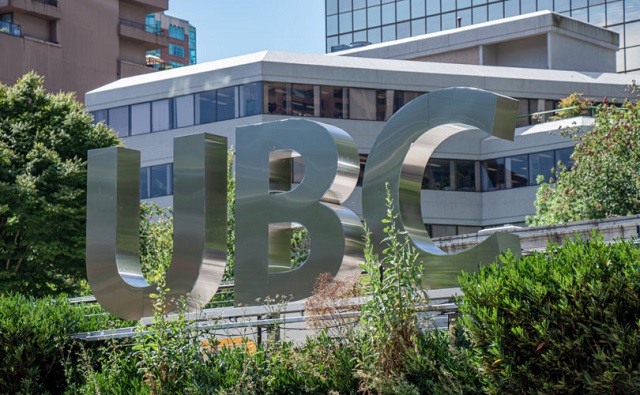DEI
Top Canadian university posts job listing that excludes white heterosexual men

From LifeSiteNews
The University of British Columbia says the new job is ‘restricted to members of the following federally designated groups: people with disabilities, indigenous people, racialized people, women, and people from minoritized gender identity groups.’
One of Canada’s most well-known universities has posted a job opening for a new research chair position but has essentially barred non-homosexual white men from applying for the job.
A recent job posting for the position of “Tier 1 Canada Research Chair in Oral Cancer Research” at the University of British Columbia (UBC) Vancouver campus has explicitly mentioned that those who don’t meet its so-called diversity, equity, and inclusion (DEI) requirements need not apply.
The UBC job posting was published on May 21, and notes that the seven-year contract for the chair role has with it certain “eligibility requirements,” such as candidates having to demonstrate a track record of “supporting equity, diversity, and inclusion.”
According to UBC, the selection for the role will be “restricted to members of the following federally designated groups: people with disabilities, indigenous people, racialized people, women, and people from minoritized gender identity groups.”
This rules out straight white men from applying for the role. UBC uses its Equity, Diversity, and Inclusion Action Plan as well as the B.C. Human Rights Code as validation for its job requirements.
The UBC claims that its current faculty is underrepresented by those who “self-identify” as having a disability, thus it notes that a person from this category is “preferential.”
To ensure that straight white men do not apply for the job, the UBC is also mandating that anyone who applies for the role must first conduct what it calls an “equity survey.”
“Candidates from these groups must self-identify as belonging to one or more of the designated equity groups to be considered for the position,” notes UBC.
According to the UBC, “Equity and diversity are essential to academic excellence.”
“We encourage applications from members of groups that have been marginalized on any grounds enumerated under the BC Human Rights Code, including sex, sexual orientation, gender identity or expression, racialization, disability, political belief, religion, marital or family status, age, and/or status as a First Nation, Metis, Inuit, or indigenous person.”
Musk: Is the even legal?
As news of the UBC job posting spread on social media, X owner Elon Musk chimed in to comment on the matter, writing on June 3, “Is this legal in Canada?” in reply to a sarcastic post from Quebec-based academic Gad Saad mocking the job posting.
“Yes! Oral cancer research has long been dominated by white heterosexual males. Imagine the progress that can be made if the relevant research were conducted by Trans People of Color. Thank you @UBC for your epistemological courage in fighting against the scourge of White Heterosexual Science,” sarcastically wrote Saad on June 3 on X.
In recent years, there has been a notable increase in the promotion of so-called DEI requirements on employers, because of a push for it from the federal government of Prime Minister Justin Trudeau.
Indeed, LifeSiteNews recently reported on how Trudeau’s Liberal government has spent over $30 million DEI affiliated contracts amongst many federal ministries since January 2019.
When it comes to DEI, Musk has been a formidable opponent to the discriminatory hiring practices. In Canada, the only main party speaking out against it is the People’s Party of Canada, under its leader Maxime Bernier. He has been outspoken against radical gender ideology repeatedly over the last few years as well as the COVID jabs and mandates.
In April, he announced a new party policy officially denouncing the so-called DEI agenda, saying it is nothing more than a “fundamentally racist, sexist, and discriminatory ideology” that “divides Canadians.”
Bernier told LifeSiteNews recently that the only way to stop the “radical policies” of the Diversity, Equity, and Inclusion (DEI) agenda – which he calls a combination of “official discrimination against white heterosexual males” and the “promotion of weird mental illnesses” – is for people to fight back against those seeking to undermine “traditional norms and values.”
Business
Labor Department cancels “America Last” spending spree spanning five continents

 MxM News
MxM News
Quick Hit:
The U.S. Department of Labor has scrapped nearly $600 million in foreign aid grants, including $10 million aimed at promoting “gender equity in the Mexican workplace.”
Key Details:
-
Labor Secretary Lori Chavez-DeRemer and Deputy Secretary Keith Sonderling were credited with delivering $237 million in savings through the latest round of canceled programs.
-
Among the defunded initiatives: $12.2 million for “worker empowerment” efforts in South America, $6.25 million to improve labor rights in Central American agriculture, and $5 million to promote women’s workplace participation in West Africa.
-
The Department of Government Efficiency described the cuts as necessary to realign U.S. labor policy with national interests and applauded the elimination of all 69 international grants managed by the Bureau of International Labor Affairs.
Diving Deeper:
The U.S. Department of Labor on Wednesday canceled $577 million in foreign aid grants, including a controversial $10 million program aimed at promoting “gender equity in the Mexican workplace,” according to documents obtained by The Washington Post. The sweeping decision to terminate all 69 active international labor grants comes as part of a larger restructuring effort led by John Clark, a senior DOL official appointed during the Trump administration.
Clark directed the department’s Bureau of International Labor Affairs (ILAB) to shut down its entire grant portfolio, citing a “lack of alignment with agency priorities and national interest.” The memo explaining the cancellations was first reported by The Washington Post and highlights a broader shift in federal labor policy toward domestic-focused initiatives.
Among the eliminated grants were high-dollar projects that had drawn criticism from watchdog groups for years. These included $12.2 million designated for “worker empowerment in South America,” $6.25 million targeting labor conditions in Honduras, Guatemala, and El Salvador, and $5 million to elevate women’s workplace participation in West Africa. Other defunded programs involved $4.3 million to support foreign migrant workers in Malaysia, $3 million to improve social protections for internal migrants in Bangladesh, and $3 million to promote “safe and inclusive work environments” in Lesotho.
The Department of Government Efficiency, also involved in the review, labeled the grants as “America Last” initiatives, and pointed to the lack of measurable outcomes and limited benefits to American workers. The agency commended the leadership of Labor Secretary Lori Chavez-DeRemer and Deputy Secretary Keith Sonderling for securing $237 million in savings during this round alone.
The cuts mark the second major cost-saving move under Chavez-DeRemer’s leadership in as many weeks. Just days earlier, she canceled an additional $33 million in funding, including a $1.5 million grant focused on increasing transparency in Uzbekistan’s cotton sector. Chavez-DeRemer, a former Republican congresswoman from Oregon, was confirmed as Labor Secretary on March 11th by a bipartisan Senate vote of 67-32.
Business
Publicity Kills DEI: A Free Speech Solution to Woke Companies

For years, major corporations bragged about their wonderful Diversity, Equity, and Inclusion (DEI) programs. They’re good for business and morally correct, they said. So why are they now cutting those programs?
Robby Starbuck says these programs once got a lot of buy-in, because people wanted to be nice! But DEI came to mean much more than just being nice.
Starbuck says what it looked like in practice was “crazy trainings” and “overtly racist hiring practices.” Now lots of people agree with him.
Companies actually take notice when Starbuck tells his many followers about their DEI programs. Often the programs get dropped.
That’s the power of free speech.
After 40+ years of reporting, I now understand the importance of limited government and personal freedom.
——————————————
Libertarian journalist John Stossel created Stossel TV to explain liberty and free markets to young people.
Prior to Stossel TV he hosted a show on Fox Business and co-anchored ABC’s primetime newsmagazine show, 20/20. Stossel’s economic programs have been adapted into teaching kits by a non-profit organization, “Stossel in the Classroom.” High school teachers in American public schools now use the videos to help educate their students on economics and economic freedom. They are seen by more than 12 million students every year.
Stossel has received 19 Emmy Awards and has been honored five times for excellence in consumer reporting by the National Press Club. Other honors include the George Polk Award for Outstanding Local Reporting and the George Foster Peabody Award.
_ _ _ _ _ _ _ _
To get our new weekly video from Stossel TV, sign up here: https://www.johnstossel.com/#subscribe
_ _ _ _ _ _ _ _
-

 2025 Federal Election2 days ago
2025 Federal Election2 days agoPM Carney’s Candidate Paul Chiang Steps Down After RCMP Confirms Probe Into “Bounty” Comments
-

 2025 Federal Election2 days ago
2025 Federal Election2 days agoLiberal MP Paul Chiang Resigns Without Naming the Real Threat—The CCP
-

 2025 Federal Election2 days ago
2025 Federal Election2 days agoFight against carbon taxes not over yet
-

 2025 Federal Election2 days ago
2025 Federal Election2 days agoMark Carney refuses to clarify 2022 remarks accusing the Freedom Convoy of ‘sedition’
-

 Automotive1 day ago
Automotive1 day agoElectric cars just another poor climate policy
-

 Energy1 day ago
Energy1 day agoWhy are Western Canadian oil prices so strong?
-

 2025 Federal Election9 hours ago
2025 Federal Election9 hours agoWEF video shows Mark Carney pushing financial ‘revolution’ based on ‘net zero’ goals
-

 Break The Needle17 hours ago
Break The Needle17 hours agoWhy psychedelic therapy is stuck in the waiting room








